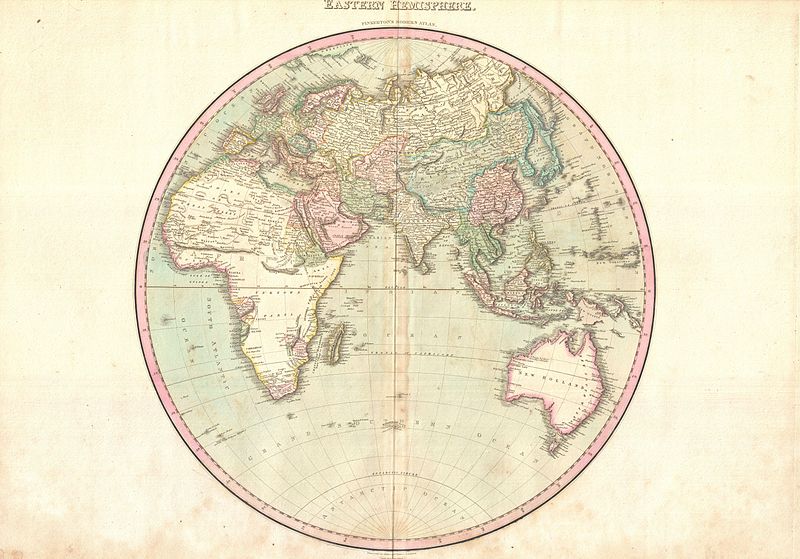 For the first time, the most recent Defence White paper contained multiple references to Africa, illustrating Australia’s growing interest and engagement with the continent. Australia is playing an active role in making Africa more secure and stable through participation in peacekeeping missions and counter-terrorism activities. Australia’s economic interests are focused on resources in Africa, and there are an increasing number of Australian companies and personnel operating there. The growth in Indo-Pacific maritime trade routes is apparent and Australia has a strong interest in ensuring their stability.
For the first time, the most recent Defence White paper contained multiple references to Africa, illustrating Australia’s growing interest and engagement with the continent. Australia is playing an active role in making Africa more secure and stable through participation in peacekeeping missions and counter-terrorism activities. Australia’s economic interests are focused on resources in Africa, and there are an increasing number of Australian companies and personnel operating there. The growth in Indo-Pacific maritime trade routes is apparent and Australia has a strong interest in ensuring their stability.
The inclusion of Africa in the White Paper shows that the continent is on the adgenda, and highlights the recognition amongst Australia’s leading policy makers that it needs to be given serious consideration within defence policy. This is also consistent with Australia’s position on the UN Security Council for two years, which will bring a heightened focus on Africa—a large percentage (well over 50%) of the Council’s work is on Africa.
The White Paper states that the Indian Ocean is becoming the ‘world’s busiest trade corridor’. ‘One-third of the world’s bulk cargo and around two-thirds of global oil shipments’ travel through it. It’s vitally important for Australia to keep the Indian Ocean waterways secure and stable, and this involves engaging with African states and understanding the nuances of politics and security on the African continent.
Africa is a resource-rich continent and Australian companies possess the technical skills and knowledge to successfully participate in business and investment within African states. The White Paper recognises the active role of Australian businesses in Africa and the fact that Australian economic interests in Africa will grow, with accompanying greater levels of Australian investment.
As the White Paper identified, many parts of the African continent remain unstable and insecure, despite the advances made by many African countries in recent years. It’s in Australia’s long-term economic interests to be involved in peacekeeping and stabilisation missions in African states. An important mechanism is Australian cooperation and assistance to African ‘peacekeeping capabilities’ through the African Union and other African sub-regional organisations.
There are a number of transnational security issues to be managed as well. This includes the propensity of fragile and failing states to become havens for Islamic terrorism, as seen in the horn of Africa. The RAN has been an active contributor to international counter-piracy efforts of the horn of Africa, so it’s no surprise that the issue of piracy on both the east and western coasts of Africa and the need to mobilise international efforts to combat it were specifically mentioned. As the white paper acknowledges, Australia is contributing $5 million to the UN Trust Fund for the African-led International Support Mission to Mali (AFISMA) and is developing defence relations that will support efforts like the The African Union Mission to Somalia.
The Defense White Paper confirms the importance of Africa–Australia relations and illustrates the recognition of this amongst Australia’s policy makers. It’s in Australia’s interest to continue engaging in strengthening the capacity of the African Union and other sub-regional African bodies to improve preventative diplomacy on the continent, and address the root causes of instability and insecurity before crises develop. Political stability and security in African states is of paramount importance for Australian business and investment in the region. Australian companies can further the development of a stable environment by acting in the best interests of African populations, with transparency and accountability as top priorities. In turn this will better enable democratic consolidation, which will promote stability and security. A more secure Africa is one in which Australian engagement can flourish and it’s in Australia’s long term economic and political interest to include Africa on Australia’s defence agenda. The 2013 Defence White Paper establishes an important precedent.
Sabrina Joy Smith is a PhD candidate with the Centre for the Study of the Great Lakes region of Africa at the Institute for Development Studies and Management, Belgium. She is currently based in New South Wales. Image courtesy of Wikimedia Commons.

